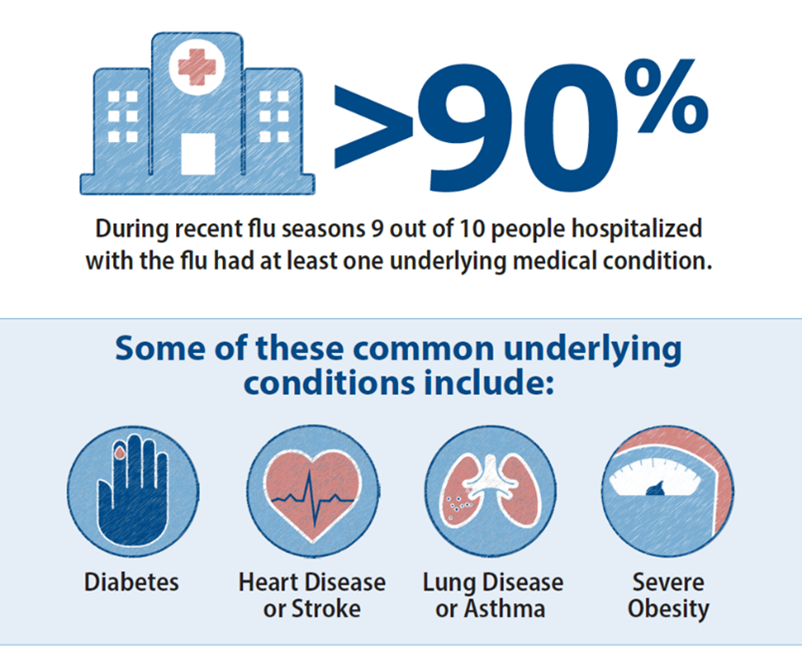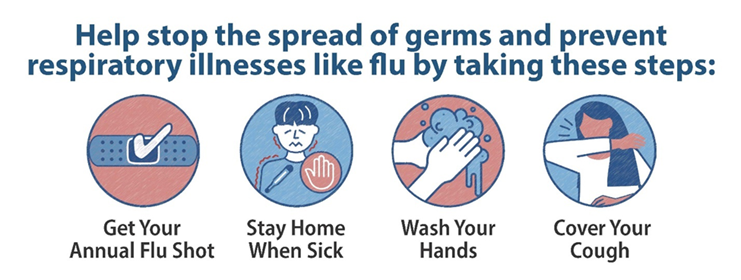
Living with a chronic disease has its daily challenges and can certainly take a toll on one’s physical and mental wellbeing.
In the Mountain State, asthma, heart disease, Chronic Obstructive Pulmonary Disease (COPD), diabetes, extreme obesity, and cancer are the most common chronic diseases folks live with. According to the Partnership to Fight Chronic Disease ithat’s a staggering number of people who struggle daily with a chronic disease. Unfortunately, because of their chronic disease, they also are at a higher risk of further health complications from other illnesses, including the flu.
Here are three things you need to know this flu season to stay protected if you or a loved one suffer from a chronic disease…
- The flu can be tough to fight if you are living with chronic disease.
Living with a chronic illness, like diabetes, heart disease, lung cancer, or severe obesity can make it incredibly difficult for the immune system to fight the flu and other respiratory viruses.
When your body is already trying to manage your current illness, adding infection from the flu to the mix can make it difficult to tackle both at the same time, and can even make chronic medical conditions worse.
- Infection from the flu can lead to serious health complications.
If your body is struggling to fight the flu, serious health problems can arise. Those living with a chronic disease must be extra careful during flu season, since flu infection can cause chronic disease symptoms to worsen or cause new health complications to arise.People with the flu and chronic illnesses are at an increased chance of stroke, heart attack, pneumonia, and overall physical decline. These grave complications can land someone with a chronic illness in the hospital and can lead to death.If you think you are sick with the flu, visit your healthcare provider right away, and take antivirals if they are prescribed to you.
- Flu vaccination is key for prevention of severe disease.
Health officials across the nation are stressing the importance of the flu vaccination for everyone over the age of six months due to the co-circulation of multiple respiratory viruses.By getting your flu shot, you have a higher chance of preventing the flu or reducing the severity of the illness. Flu vaccination is most effective at preventing severe flu and flu-related hospitalizations.If you have a chronic disease, you’re probably taking steps every day to manage your disease, such as eating healthy or taking medications as prescribed by your doctor. Flu vaccination is another easy way to yourself healthy and protected from severe influenza.
Getting your annual flu shot is the best way to protect yourself, your, family and your loved ones from the flu and its complications. You can also help stop the spread of germs and prevent respiratory illnesses like flu include staying home when sick, washing your hands, and covering your cough.

Most insurance plans cover annual flu shots. For adults who do not have insurance or whose health insurance does not cover flu vaccination, free flu shots are available at many community health centers and local health departments.
To find a flu shot location near you, visit vaccines.gov/find-vaccines.
Talk to your healthcare provider or visit cdc.gov/flu for more information about which flu vaccine is right for you and your family members.

